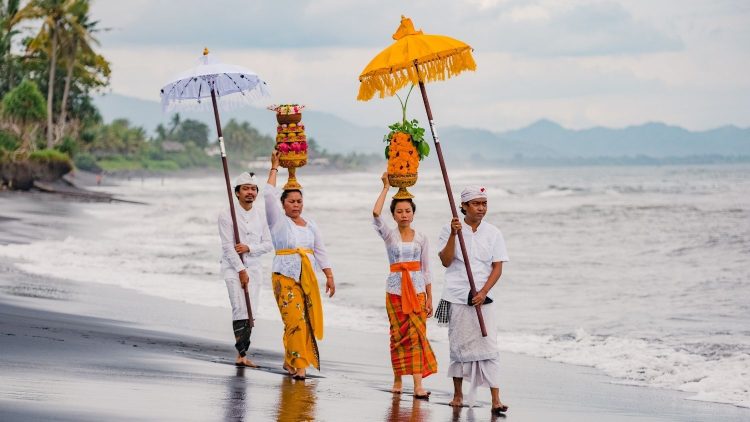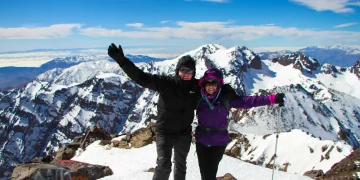In a world addicted to movement, noise, and constant stimulation, there is one island that chooses to press pause each year—not metaphorically, but entirely. Bali, the Hindu heart of Indonesia, welcomes the New Year not with fireworks or late-night parties, but with complete silence. No cars. No music. No electricity. Not even flights in or out. This sacred occasion, known as Nyepi, or Silent Day, is one of the most profound cultural practices in Southeast Asia, and for travelers seeking meaning beyond beaches and yoga retreats, it offers an unmatched opportunity for spiritual and cultural immersion. In 2025, Nyepi falls on March 29, and if you plan to be on the island during this extraordinary time, there’s more to consider than booking your hotel. Understanding the history, traditions, rules, and emotional rhythm of Nyepi can turn your visit from a logistical inconvenience into a once-in-a-lifetime experience of mindful travel.
What Exactly Is Nyepi, and Why Does Bali Go Silent?
Nyepi is the Balinese New Year, celebrated based on the Saka lunar calendar. But unlike the exuberant celebrations seen in much of the world, this new year begins with a full-day ritual of purification through silence, fasting, and inward reflection. It’s a time to cleanse not just the body, but the island’s energy itself. Traditionally, Nyepi is a day for meditation, for not using fire or electricity, for staying inside and contemplating the past year—and the year to come.
Balinese Hindus believe that during Nyepi, malevolent spirits pass over the island. By remaining quiet and invisible, residents and visitors alike make Bali appear deserted, tricking the spirits into thinking the island is uninhabited, so they will leave it alone for the year ahead. The silence serves a dual function: spiritual protection and personal renewal.
The island’s rules during Nyepi are taken seriously. Even Ngurah Rai International Airport closes for 24 hours—one of the few major airports in the world to do so for religious reasons. Streets are empty, shops are shut, Wi-Fi is disconnected in many areas, and even television broadcasts go dark. Local security forces known as Pecalang patrol neighborhoods to ensure the observance is respected by everyone, tourists included.
Days of Preparation Before the Silence
Though Nyepi itself is a day of absolute stillness, the days leading up to it are rich with activity and emotion. The most dramatic and colorful of these is the Ogoh-Ogoh parade, held on the eve of Nyepi. Enormous demonic effigies made of bamboo and paper—often grotesque and imaginative—are paraded through the streets of towns and villages with thundering gamelan music, dancing, firecrackers, and chants. These monsters symbolize the negative forces and impurities from the past year.
After the raucous parade, the effigies are ritually burned to symbolize the destruction of evil and ego. This fiery release of chaos sets the stage for the purification that follows. For visitors, witnessing an Ogoh-Ogoh parade is a powerful contrast to the absolute silence of the next day. Together, the two phases mirror a journey from external chaos to internal peace.
Other rituals include Melasti, a ceremonial cleansing held a few days prior, where sacred temple objects and statues are brought to the sea or rivers in long, elegant processions. Dressed in all white, communities walk together in a moving act of spiritual renewal, bathing the items in water to purify both the objects and their intentions for the year ahead.
Understanding the Rules of Nyepi
For visitors, Nyepi’s restrictions can feel strict at first, but honoring them is essential—not only out of respect for local custom, but also as a way to experience the depth of this cultural practice. Here’s what to expect during the 24-hour observance, which typically begins at 6 a.m. and ends the following morning:
- No travel: Streets are closed to both vehicles and pedestrians. You must stay inside your hotel or villa.
- No electricity: Most accommodations minimize power use. Lights are dimmed or turned off entirely. Some resorts allow minimal lighting inside rooms but request that curtains remain drawn.
- No internet or TV: Wi-Fi is often cut, and public broadcasts cease. Some hotels maintain internal connectivity, but access is generally restricted.
- No noise: Loud talking, music, or any activity that disturbs the silence is discouraged. This applies to both guests and staff.
- No fire or cooking: Meals are typically prepared ahead of time, and cooking fires or stoves are not used during the day.
- No work: It is a day for stillness, not productivity.
- No entertainment or recreation: Reading, writing, meditating, or simply resting are encouraged.
Violating these rules can be seen as disrespectful. Pecalang patrol discreetly ensures compliance, and while they are generally kind and understanding, they do expect full participation from locals and tourists alike.
How to Prepare If You’ll Be on the Island
If your trip to Bali includes Nyepi, some thoughtful preparation will ensure that the day is meaningful rather than frustrating. Book your accommodation well in advance—especially if you plan to stay in Ubud, Seminyak, or Canggu, where hotels often tailor special Nyepi packages. Choose places that offer serene surroundings, natural light, and outdoor space, such as a garden or balcony, where you can safely observe without breaking the rules.
Plan your meals ahead of time. Most hotels offer Nyepi meal boxes or pre-cooked food deliveries, but it’s wise to have some snacks, water, and fruit on hand. Bring a journal, a good book, or anything that supports inner reflection. Many travelers use the day to unplug intentionally—writing letters, practicing yoga, or simply resting without the usual distractions.
Above all, arrive on the island at least a day or two before Nyepi. Since the airport shuts down entirely, and public transport halts, late arrivals are not possible. Similarly, if you’re planning to leave Bali around that time, make sure your departure date doesn’t fall on Nyepi itself.

A Rare Invitation to Stillness
What makes Nyepi truly unforgettable is not its rarity but its invitation. In a hyperconnected age, being asked to do absolutely nothing—to be still, to observe, to listen—is revolutionary. Even those who didn’t initially plan to participate often find themselves transformed by the experience.
As the sun sets and the island descends into darkness, a different kind of light emerges. The stars above, normally faded by artificial glow, reveal their full brilliance. The night is quiet, undisturbed by traffic or music or digital alerts. You become acutely aware of breath, of time slowing, of a collective human pause. The silence is not empty—it’s full of meaning.
For spiritually inclined travelers, Nyepi becomes more than a cultural event; it becomes a ritual of personal renewal. Some travelers even return year after year, timing their trips to coincide with Silent Day not because it offers spectacle, but because it offers space.
Not for Everyone—But Transformational for the Right Traveler
It’s important to acknowledge that Nyepi isn’t for every kind of traveler. If your idea of a perfect holiday involves nightlife, loud beach clubs, or constant connectivity, you may find the stillness uncomfortable or even unsettling. But for those who seek depth over entertainment, who are willing to sit with silence and emerge changed, Nyepi is a profound gift.
It’s also worth noting that non-Hindu residents and expats across Bali voluntarily observe Nyepi, even when not required. The collective pause it creates brings a rare sense of unity—rich and poor, local and foreign, spiritual and secular—all sharing in a single, silent breath.
The Day After: Ngembak Geni and Reawakening
Once Nyepi ends, the island doesn’t jump immediately back into full swing. The following day, known as Ngembak Geni, is a time for visiting family, asking for forgiveness, and renewing social bonds. You’ll see Balinese families dressed in traditional attire, exchanging blessings and small offerings. The energy is gentle, soft, and reflective—like waking from a dream.
For travelers, this is a good time to reconnect as well. Consider spending it in quiet nature or revisiting the temples and communities that observed Nyepi with you. If you’ve journaled or meditated through the silence, this is the perfect day to process what came up.
Conclusion: More Than a Holiday—A Personal Reset
Attending Nyepi in Bali is not a bucket-list spectacle. It’s not something to photograph, hashtag, or check off. It’s something to feel, to absorb, and to respect. For travelers ready to trade stimulation for stillness, ego for humility, and escape for reflection, Nyepi offers a powerful reintroduction to themselves—and to the world.
Whether you approach it with curiosity, reverence, or a desire to unplug, Nyepi is unlike anything else you’ll experience in your travels. It reminds you that silence is not the absence of something, but the presence of everything.





















